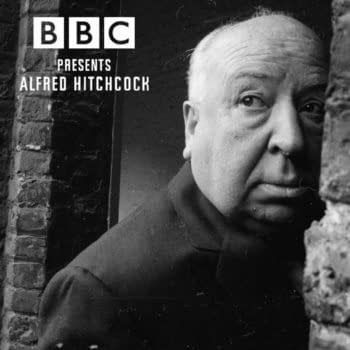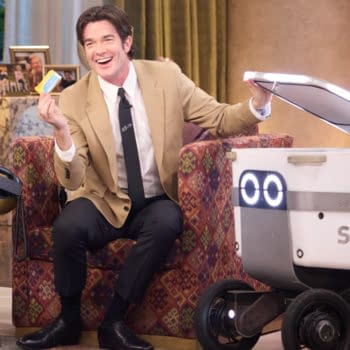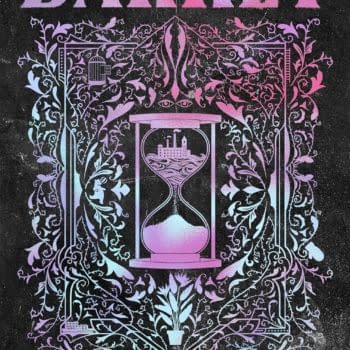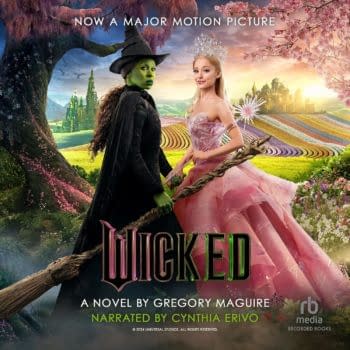Posted in: BBC, Doctor Who, TV | Tagged: bbc, catherine tate, david tennant, disney, doctor who, russell t davies
Doctor Who: The 14th Doctor Was The Saddest Doctor to Ever End an Era
Doctor Who ended an era with David Tennant's Fourteenth, the saddest Doctor of them all - possibly more than Peter Capaldi's Twelfth.
Article Summary
- David Tennant returned as the Fourteenth Doctor in the 60th Anniversary Specials.
- The Fourteenth Doctor embodies a sadder, older aspect with a touch of melancholy.
- Doctor Who's history of distinctive personalities from each actor is highlighted.
- Unlike his predecessors, Tennant's Doctor is granted a redemptive, happy ending.
Ahh, Doctor Who, everyone missed David Tennant, so Russell T. Davies brought him back for one last hurrah in three 60th Anniversary Specials that were needed to herald a transition from the previous era that began with Davies' revival of the show in 2005 and prepare for the Disney+ Big Budget global streaming era. But bringing Tennant back wasn't just some nostalgic cash-in to boost ratings, no – though, of course, it was! – Davies is a savvy writer who knows the story needs to matter, and he turned the Fourteenth into the saddest Doctor with the greatest air of tragedy.

Tennant was barely 30 when he became the Tenth Doctor in 2006, and it had been fourteen years since he left. The Fourteenth wasn't just the Tenth brought back, but the Fourteenth with the accumulated experiences and tragedies of the three Doctors before them. Tennant was obviously older with fourteen years of life experience himself to bring to his performance this time. The character has always been a role partly imbued with the personality of the actors that played them. The Doctor would have been just a Generic British Adventure Hero 101 without William Hartnell's Victorian crotchetiness, Patrick Troughton's clownishness, Jon Pertwee's paternal imperiousness, Tom Baker's sheer oddness, Peter Davison's earnestness, Colin Baker's barely suppressed air of contempt, Sylvester McCoy's sinister mischief, Paul McGann's romanticism, Christopher Eccleston's Northern working-class snark, Tennant's boyish cockiness, Matt Smith's shy impishness, Peter Capaldi's melancholy, Jodie Whittaker's whimsical kindness or Jo Martin's hair-trigger menace. Tennant's Fourteenth Doctor is no longer the boyish Tenth but an older, sadder figure facing loneliness and his impending mortality. His three specials are a mirror to the three specials that ended his original run, both featuring The Doctor facing his end, but the 60th Anniversary Specials came with a twist: a happy ending.
Yes, the Fourteenth Doctor got a new TARDIS that looks like an Apple Store. Who doesn't want a personal Apple Store where they're the only customer, catered to with a coffee and tea maker and even with different lights and aromas to suit the mood? Otherwise, the Fourteenth Doctor's short run is a story of unfinished business: reuniting with Donna Noble (Catherine Tate) to redeem her fate as well as their own. Tennant's Doctor has always worn the weight of loneliness, and the Fourteenth Doctor also inherited the ancient sadness of Capaldi's Twelfth Doctor, who felt doomed to suffer an eternal life of unending loss. In that respect, the Doctor's story could be read as a Buddhist parable about a life of endless death and rebirth as they try to be compassionate. Steven Moffat pointed out, though, that the Doctor is a terrifying figure – they show up like a god in a war, decide who deserves to win and destroy the side deemed to be the bad guys, often committing genocide in the process.
Every previous Doctor ended their life with death, often an act of sacrifice. The Fourteenth Doctor is the only Doctor who got a happy ending where he not only lived but got redemption. They got to meet their successor, and Ncuti Gatwa immediately stole the show from Tennant to stamp his authority as the New Doctor with his personality. The Fourteenth got what he secretly always wanted: life, a family, and a peaceful retirement.














